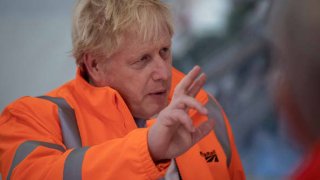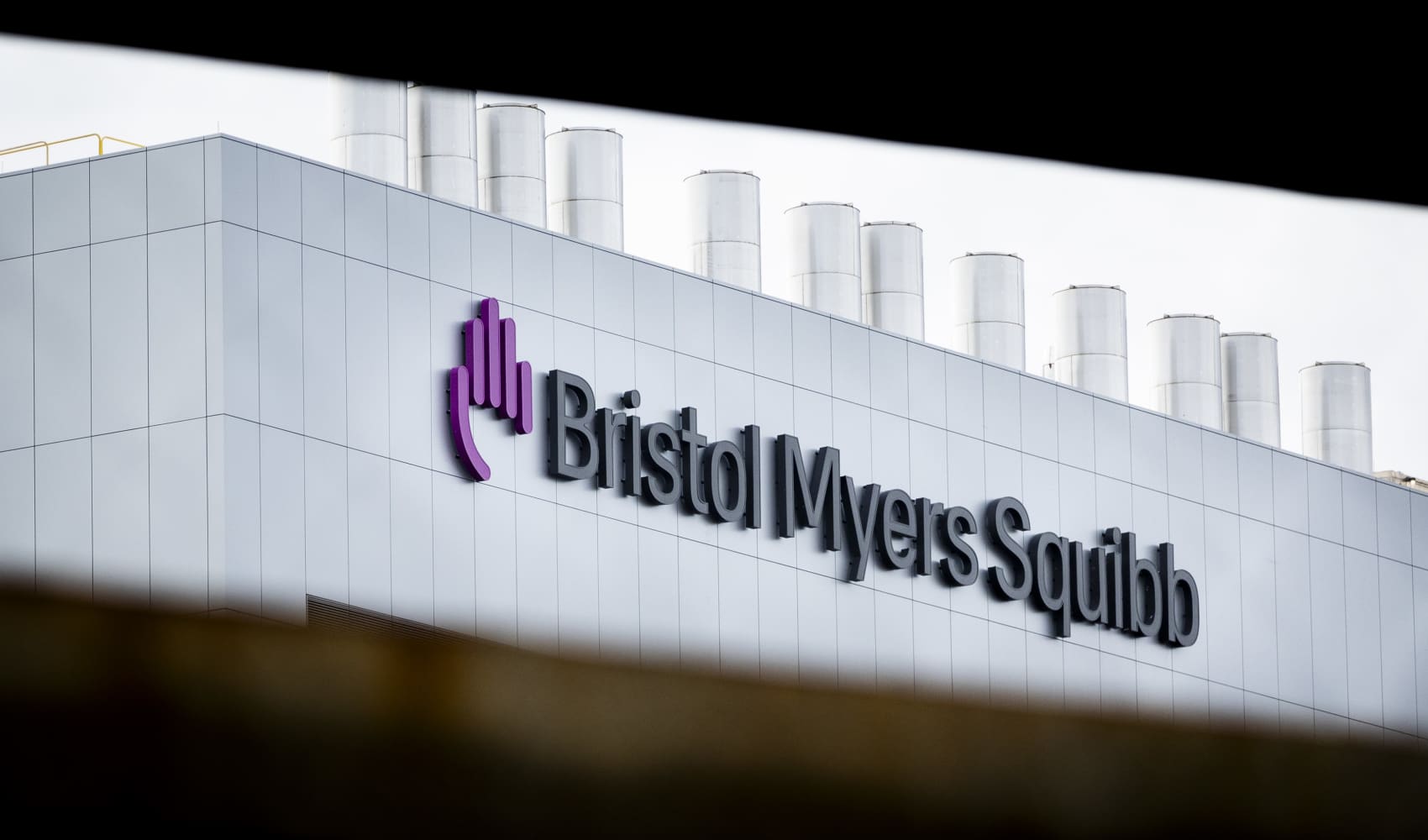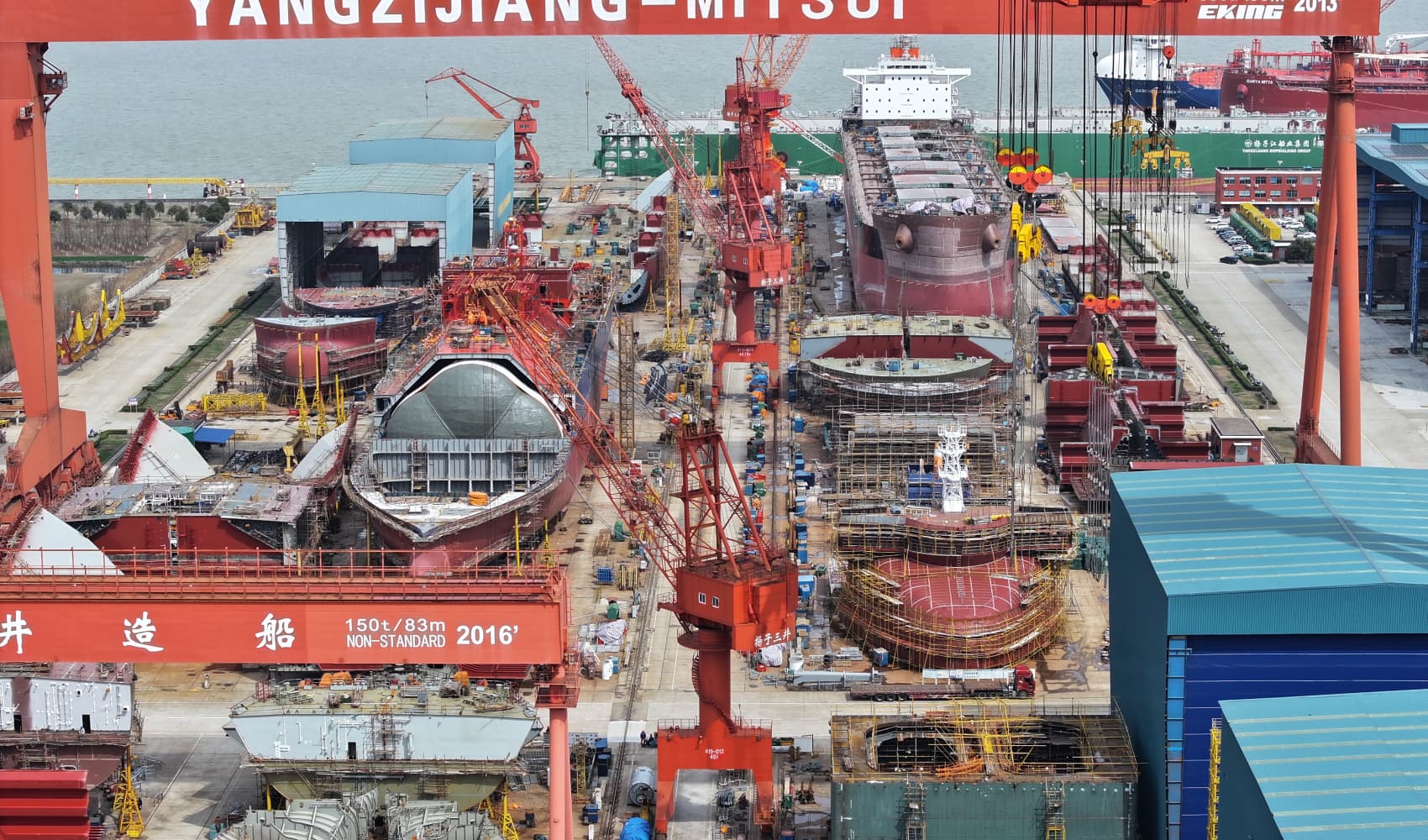
- He outlined plans on Wednesday for the country to become a "high wage, high skill, high productivity economy."
- The U.K. has been dealing with a lack of workers in some key sectors, leading to disruptions to fuel and food deliveries and shortages for British consumers.
LONDON — U.K. Prime Minister Boris Johnson promised changes to the direction that the U.K. economy is traveling in, outlining plans on Wednesday for the country to become a "high wage, high skill, high productivity economy."
Addressing his Conservative Party's annual conference later on Wednesday, Johnson told delegates that the government is "dealing with the biggest underlying issues of our economy and society" and is ready to tackle "problems that no government has had the guts to tackle before."
The speech comes at a difficult moment for Johnson, with the U.K. suffering shortages of fuel deliveries in recent weeks and amid warnings that food supplies could be hit in the runup to Christmas.
Get a weekly recap of the latest San Francisco Bay Area housing news. Sign up for NBC Bay Area’s Housing Deconstructed newsletter.
Shortages are mainly due to a lack of heavy goods vehicle drivers and overseas workers — with the shortfalls largely exacerbated by the Covid pandemic and Brexit, but also due to other factors such as low pay and working conditions.
Britain has experienced shortages of fuel at gas stations due to the shortage of specialist tanker drivers, while farmers are warning that tons of food produce could go to waste, and thousands of animals may have to be destroyed as there are not enough farm or abattoir workers to process the meat.
The labor shortage has highlighted how dependent Britain has been on overseas, seasonal workers.
Money Report
Read more: Britain deploys its army to deliver fuel as panic buying and shortages continue
For his part, Johnson — a politician often accused by his critics of loving a soundbite but lacking an eye for detail and planning — has been accused of not recognizing the seriousness of the situation.
When asked by BBC journalist Andrew Marr on Sunday about the problems facing pig farmers, who say that over 100,000 pigs could have to be culled imminently with the meat discarded due to a shortage of workers, Johnson said: "I hate to break it to you but I am afraid our food processing industry does involve the killing of a lot of animals. I think your viewers need to understand that."
He added that "the great hecatomb of pigs that you describe has not yet taken place, let's see what happens."
British workers
The prime minister and government officials have tried to play down the U.K.'s labor shortages, insisting that supply chains are pressured around the world following Covid. They have also insisted labor shortfalls can be remedied, for example by offering short-term visas to truck drivers.
The government has resisted calls for more immigration to reduce labor shortages, however, instead telling businesses to invest in British workers.
For their part, many British businesses have said they find it hard to attract British workers, particularly in certain sectors where they lack the right skills, demand higher wages and are unwilling to accept tougher working conditions — on farms or in abattoirs for example.
Johnson, whose tenure in office has largely been dominated by the pandemic, is keen to shift the government's focus onto the country's economy, particularly as the changes caused by Brexit, and the U.K.'s relationship with the EU, start to come to the fore such as the dearth of foreign workers.
The government appears determined to push on with plans to re-skill British workers, and Johnson is due to say on Wednesday that "we are not going back to the same old broken model with low wages, low growth, low skills and low productivity, all of it enabled and assisted by uncontrolled immigration," according to pre-released comments by the party.
"The answer is to control immigration, to allow people of talent to come to this country but not to use immigration as an excuse for failure to invest in people, in skills and in the equipment or machinery they need to do their jobs," he said.
One of the emerging ironies of Brexit (whose supporters said leaving the EU would reduce Britain's economic dependence on the region's labor force and produce) is that labor shortages could lead to more food imports from the EU, industry leaders say. Some are now warning that supply chain disruptions and labor issues could lead to food shortages at Christmas.
Nick Allen, chief executive of the British Meat Processors Association, told Sky News that turkeys will likely have to come from Europe during the festive period and that some much-loved foods, such as "pigs in blankets" (small sausages wrapped in bacon) may not be available.
"I suspect that food can be imported and probably the turkeys might not be British turkeys but they may end up being French, or even turkeys from further afield. We're not saying there's going to be desperate shortages, but there certainly won't be the choices available for British food, that's for certain," he said on Monday.
'Fragile moment for our economy'
The prime minister's speech, which was peppered with digs at the Labour opposition party and covered a variety of topics from conservation to "cancel culture," appeared to be well-received by party delegates and Johnson received a standing ovation from party members as he left the auditorium with his wife Carrie.
The speech was cautiously welcomed by business lobby the Confederation of British Industry, although critics commented that Johnson's optimism might be out of place with the public at a time of uncertainty.
"The prime minister has set out a compelling vision for our economy. High wages, high skills, high investment and high growth," CBI Director-General Tony Danker said after the speech.
"But the PM has only stated his ambition on wages. This needs to be backed up by action on skills, on investment and on productivity. Ambition on wages without action on investment and productivity is ultimately just a pathway for higher prices," he said, adding that "it's a fragile moment for our economy."
The opposition Labour party tweeted its response to the speech, noting that "what Boris Johnson says and what he really means are often two very different things." In another tweet, the party said that the Conservatives slogan, "'build back better," was "an empty promise."
"Here's why: Six million families face cut to Universal Credit. National insurance up. Energy prices up. Supermarket shelves empty. The Tories are not delivering for Britain," the party said.






